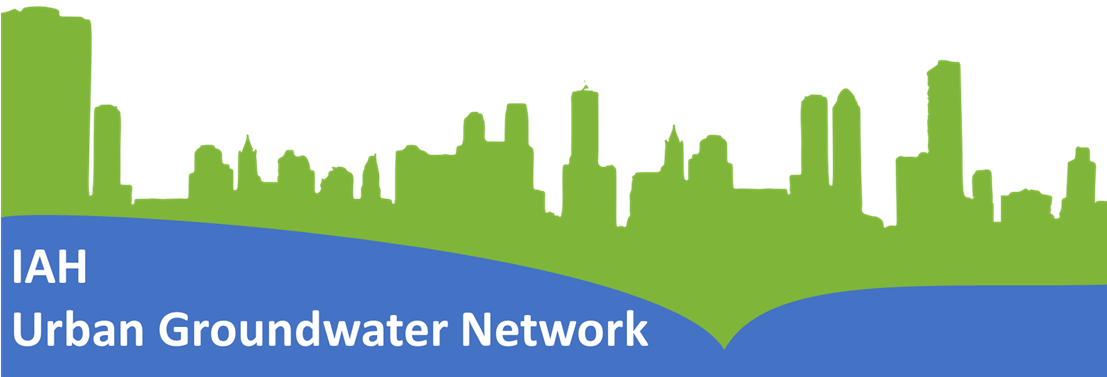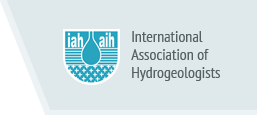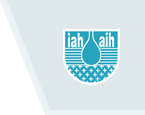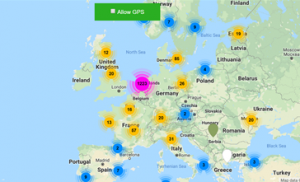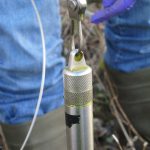IWA article series 2025
Groundwater – a vital asset for climate change adaptation. Authors: Stephen Foster, Michael Eichholz, and Julia Gathu
IWA article series 2021-2022 and Guidebook for Water Utilities & Municipal Authorities
Groundwater Assessment and Management for sustainable water-supply and coordinated subsurface drainage: A Guidebook for Water Utilities & Municipal Authorities. Authors: Stephen Foster, Radu Gogu
Climate change and urban groundwater – the path to resilience. Authors: Radu Gogu, Susie Mielby, Jane Dottridge and Stephen Foster
Groundwater futures in the spotlight. Authors: Stephen Foster, Radu Gogu, Ida Holm-Olesen and Anders Bǽkgaard
Going Underground – How Development can Impact Groundwater Resources. Authors: Stephen Foster and Radu Gogu
IAH Strategic Overview Series (IAH-SOS / AIH-SOS) with focus on Urban Groundwater
EuroGeoSurveys Urban Geology Expert Group
The Urban Geology Expert Group (UGEG) aims to support Europe’s Urban Agenda and urban policies to fulfil the requirements of European Commission (EC) Directives and the UN Sustainable Development Goals. The UGEG aims to support sharing of knowledge and capabilities in relation to urban geoscience, bringing together subsurface experts and city practitioners (e.g. urban planners, architects and policy-makers). The expert group was established by the EuroGeoSurveys to provide a focal point for delivery of high-quality scientific information and expertise relevant to the needs of the EU’s urban decision-makers and European Institutions in the areas of sustainable urban development, urban resilience, future-proofing of cities, SMART Cities, and safe construction.
More information can be found here: https://www.eurogeosurveys.org/urban-geology/
IWA article series 2019-2020
Urban groundwater – mobilising stakeholders to improve monitoring. Authors: Stephen Foster, Radu Gogu, and Julia Gathu
Urban groundwater monitoring – key requirements for networks and underpinning stakeholder relationships. Authors: Stephen Foster, Radu Gogu and Julia Gathu.
Growth in Private Wells in urban areas – experiences and lessons from four Indian cities on policy and investment approaches needed. Authors: Mohammad Faiz Alam and Stephen Foster.
Climate change – the role of groundwater in supporting climate resilience. Authors: Stephen Foster, Julia Gathu, Michael Eicholz and Ricardo Hirata
Challenges in measuring and monitoring time series groundwater levels
Review paper in HESS, provides an excellent resource to all those working in groundwater monitoring and research as to the key issues, challenges and factors to be considered when measuring groundwater-level time series.
Rau GC, Post VEA, Shanafield M, Krekeler T, Banks EW, Blum P. 2019. Error in hydraulic head and gradient time-series measurements: a quantitative appraisal. Hydrology and Earth System Sciences; 23, 3603-3629. PDF
EuroGeoSurveys – Expert Urban Geology group
The European Geological Surveys initiative (EuroGeoSurveys) has appointed a new expert working group focusing specifically on Urban Geology and related geoscience. This continues and builds from much of the work led by the EU COST ‘Sub-Urban Action (2013-17), which involved 31 countries and 29 cities. Further information to the themes and working foci of the group will be published on the EGU Expert group page over the coming months.
For further information to the group, please contact the co-chairs:
Stephanie Bricker: step@bgs.ac.uk
Krzysztof Majer: krzysztof.majer@pgi.gov.pl

WA Groundwater Management Specialist Group – Newsletter
Please find a link to the IWA GWM Newsletter_April 2019.
This details the aims and activities of this new IWA specialist group, which has been set up by the IWA in recognition of the groundwater as a major ‘cross-cutting’ consideration in the implementation of integrated water resource management (IWRM).
The IAH urban groundwater network is working closely with the IWA specialist group – and several joint initiatives and activities planned between the IWA and IAH-UGN for 2019 and beyond. More details can be found on our Activities page, and in the IWA newsletter.
Published Paper. A key factor in enhancing water security?
Foster S., Bousquet A., Furey S.; Urban groundwater use in Tropical Africa – a key factor in enhancing water security?. Water Policy 1 October 2018; 20 (5): 982–994. doi: https://doi.org/10.2166/wp.2018.056
Sustainable Urban Drainage schemes – Climate Scan
www.climatescan.nl
Climate Scan is a free and interactive tool for practictioners and researchers worldwide working in Sustainable Urban Drainage. The tool contains >3,000 cases studies and details of sustainable urban drainage schemes worldwide to help promote knowledge sharing and understanding. Over 10,000 practitioners and researchers have joined the Climate Scan tool in the last two years. Videos, high quality photos, case study details, and links to the recent scientific research papers in sustainable urban drainage worldwide are provided.
Anyone working within sustainable urban drainage is encouraged to join and to add to the case study database.
Graphic: Climate Scan
Special Issue of Procedia Engineering 2018
The Urban Subsurface – from Geoscience and Engineering to Spatial Planning and Management
Conference proceedings, from a joint EU COST SUBURBAN Action IAH UGN session Urban Hydrogeology
Urban Groundwater dependency in Tropical Africa
UPGro research programme Working Paper 2017
Sustainable use of the subsurface
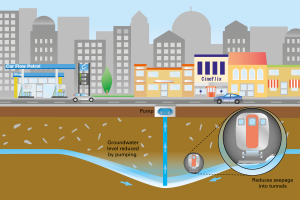
Managing competing demands of the urban surface, alongside sustainable use of urban groundwater resources. NERC © BGS.
British Geological Survey — image guide to the challenges and opportunities.
BGS© NERC 2017
Groundwater, geothermal, modelling and monitoring
EU COST Action SUBURBAN Working Group report 2.4, 2015
Resilient Cities and Groundwater
IAH Strategic Overview paper 2015 PDF
Urban Groundwater – policies and institutions for integrated management
Global Water Partnership Perspectives Paper 2013
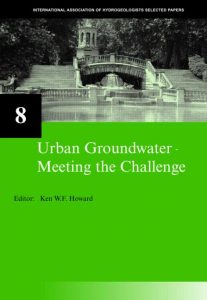 Urban Groundwater – meeting the challenge
Urban Groundwater – meeting the challenge
IAH book – Selected Papers in Hydrogeology (IAH members receive a discount)
